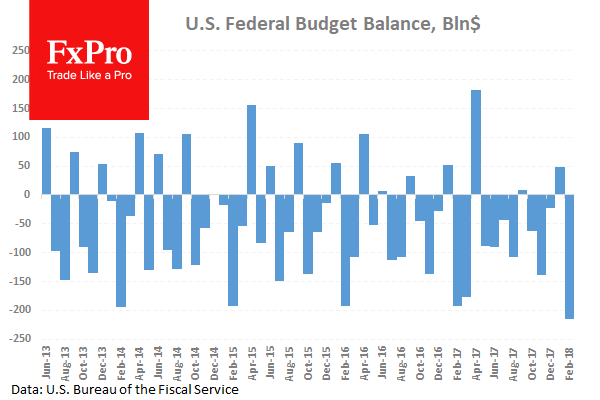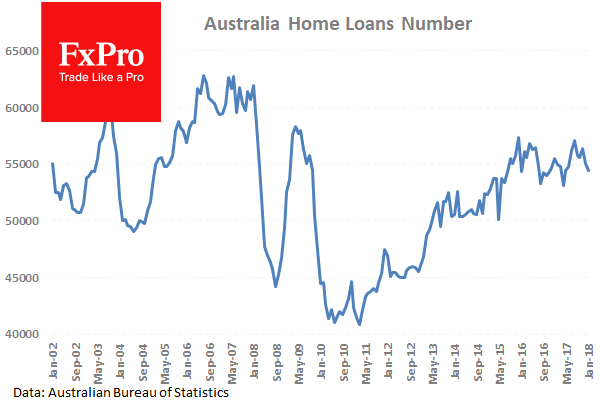The US Monthly Budget Statement (Feb) was $-215B v an expected $-216B, against a reading of $49.0B in the prior month. This data represents the balance of the federal government’s income and spending. The February number was the biggest decline in the budget since February of 2014. Seasonally, the February data is lower than other months due to variations that occur at this time of year and events that settle during the month. Receipts are at their lowest in this reading each year, while, for outlays, it is one of the highest, leading to a disparity. USDJPY sold off from 106.538 to 106.310 because of this data release.
New Zealand RBNZ Governor Grant Spencer gave a speech titled “Getting the best out of macro-prudential policy” at the Reserve Bank of New Zealand. He made the following comments: The RBNZ is to review macro-prudential policies with the Treasury. He is keen to see macro-prudential develop as a credible and sustainable policy.
Australian Home Loans (Jan) came in at -1.1% v an expected -0.1%, against a previous -2.3%. This is a volatile data point, with recent extremes between +5 and -6. This result shows a contraction in the number of loans for home purchases. Also released at this time was Investment Lending for Homes (Jan) data, coming in at 1.1% against a previous -2.6%. AUDUSD fell from 0.78743 to a low of 0.78661 after this data.
Japanese Tertiary Industry Index (MoM) (Feb) came in at -0.6% against an expected -0.2%, from 0.0% previously, which was revised up from -0.2%. A lower than expected result is a slight worry for future economic health but inside recent ranges for this data point. USDJPY moved higher from 106.593 to 106.838 after this data was published.
EURUSD is down -0.04% overnight, trading around 1.23290.
USDJPY is up 0.42% in early session trading at around 106.856.
GBPUSD is down -0.13% this morning, trading around 1.38860.
Gold is down -0.28% in early morning trading at around $1,319.28.
WTI is down -0.19% this morning, trading around $61.15.


